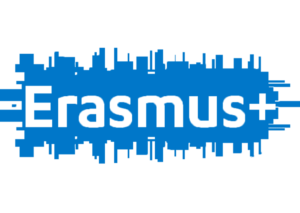 Erasmus + improves higher education in Europe and worldwide by giving students and professionals opportunities to develop their skills and employment opportunities. The program beneficiaries multiply the program effect by sharing the knowledge and experience from the program contributing to development of educational systems and business markets in their respective countries.
Erasmus + improves higher education in Europe and worldwide by giving students and professionals opportunities to develop their skills and employment opportunities. The program beneficiaries multiply the program effect by sharing the knowledge and experience from the program contributing to development of educational systems and business markets in their respective countries.
Futurum organizes vocational trainings and internships in Poland for foreign students of higher education in different subject areas. Futurum also places the students in related educational institutions that correspond with their area of study.
Higher education system in Poland:
The Polish higher education system delivers state (public) and private (non-public) education. Two main higher education institution types are a university (which are authorized to offer a doctoral program) and non-university institutions.
Higher education institutions in Poland offer the following study programs:
First cycle studies:
-studies leading to the BA degree, professional title of “licencjat” – 3 to 4 year- long
-studies leading to the professional title of “inżynier”- 3.5 to 4 year-long
Second cycle studies:
– studies leading to the MA degree, professional title of “magister” or an equivalent degree, accessible for graduates of first cycle studies -1.5 to 2 years long
– long-cycle studies leading to the MA degree, professional title of “magister” or an equivalent degree- of 4.5 to 6 years long
Third cycle studies: doctoral programs leading to the PhD degree, programs provided by the university-type schools as well as some research institutions.
Enrollment to study programs in Polish higher education system is open to students who hold a secondary school graduation certificate (for admission to a first-cycle program or a long-cycle program) or students who hold the MA, BA or ‘inżynier’ degree or an equivalent degree (for admission to a second-cycle program). All applying students should also fulfill admission conditions defined by a given higher education institution available on its website.
Admission to the first-cycle programs and long-cycle programs is based primarily on results of the secondary-school graduation exam (‘matura’). The senate of a higher education institution specifies which results of the secondary-school graduation exam provide the basis for admission to the study programs. The date of enrollment varies according to the institution and the branch of study.
Foreign students who wish to enroll should contact directly the selected university, its faculty or international relations office or visit the university website to obtain appropriate detailed information on the conditions of admission.
Higher education system in Poland is free of charge at full-time day courses in public sector institutions. However, there are two exceptions to this rule: charging fees is permitted in the case of courses that are repeated by a student as a result of his/her unsatisfactory achievements; students applying for admission have to pay an administrative fee which amount is fixed by an institution, but cannot exceed the maximum defined annually by the minister of education.
The majority of state higher education institutions organize fee-paying part-time studies.
Tuition fees in either state or non-state establishments of higher education vary greatly, and the amount depends not only on the real cost of studies, but also on the interest displayed in different fields of study.
The academic year in Poland is divided into two semesters – winter and summer, each lasting 15 weeks.
The winter semester starts in October and lasts till mid February, with Christmas holidays of about ten days. The examination session usually lasts for two or three weeks, beginning in January.
The summer semester starts in mid February and ends in June, with a one-week break for Easter.
Summer holidays last for three months – from the beginning of July to the end of September, but only for those students who passed all exams at the summer examination session (taking place for two-three weeks in June). The ones who did not succeeded retake their exam(s) in September.

